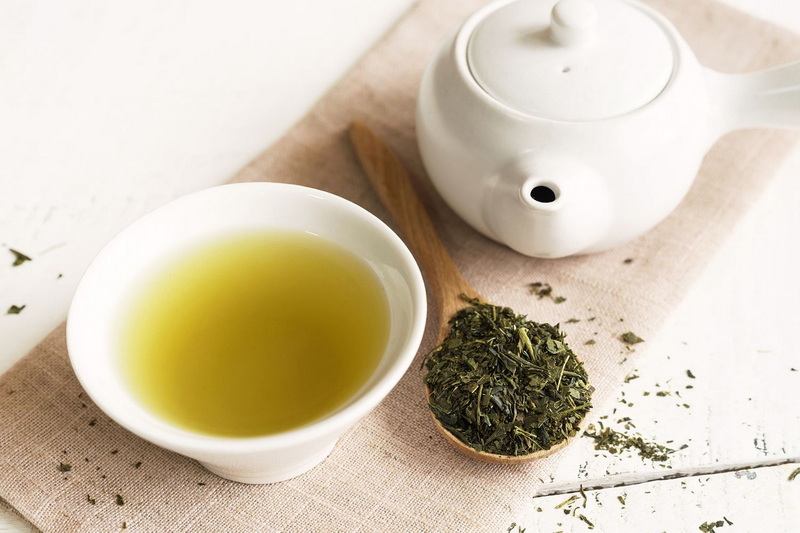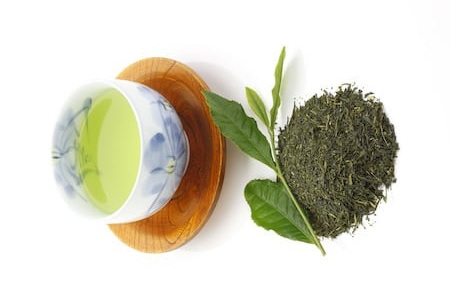Content Menu
● Understanding Green Tea Extract
>> Types of Green Tea Extract
● Caffeine Content in Green Tea Extract Pills
● Factors Influencing Caffeine Levels
● Health Benefits of Green Tea Extract
● Risks and Considerations
● Recommended Dosage
● How to Choose a Quality Green Tea Extract
● Combining Green Tea Extract with Other Supplements
● Lifestyle Considerations
● Conclusion
● FAQs
>> 1. What is the average amount of caffeine in a cup of brewed green tea?
>> 2. Can I take green tea extract if I am sensitive to caffeine?
>> 3. How does the caffeine in green tea compare to coffee?
>> 4. Are there any side effects associated with taking green tea extract?
>> 5. Is it safe to take green tea extract daily?
● Citations:
Green tea extract has gained popularity as a dietary supplement due to its numerous health benefits, including weight loss, improved brain function, and antioxidant properties. However, one common question among consumers is: How much caffeine is in green tea extract pills? This article will explore the caffeine content in green tea extract, its effects, and considerations for consumption.

Understanding Green Tea Extract
Green tea extract is derived from the leaves of the Camellia sinensis plant. It is rich in polyphenols, particularly catechins like epigallocatechin gallate (EGCG), which are known for their health benefits. Unlike regular green tea, which contains caffeine and other compounds in a diluted form, green tea extract is concentrated, making it a potent source of these beneficial substances.
Types of Green Tea Extract
There are several types of green tea extracts available on the market:
- Standardized Extracts: These extracts contain a specific percentage of active ingredients, such as EGCG. They are designed to provide consistent dosages.
- Decaffeinated Extracts: For those sensitive to caffeine, decaffeinated versions are available. These extracts retain the health benefits of green tea while minimizing caffeine intake.
- Whole Leaf Extracts: These products utilize the entire leaf and may contain additional nutrients found in green tea.
Caffeine Content in Green Tea Extract Pills
The caffeine content in green tea extract can vary significantly depending on the brand and formulation. Here are some key points regarding caffeine levels:
- General Range: Most green tea extract supplements contain between 25 mg to over 200 mg of caffeine per serving. Some brands may have little to no caffeine if they use decaffeinated leaves.
- Brand Variations: For instance:
- NOW Foods offers 32 mg of caffeine per 400 mg of green tea extract.
- Nature's Truth provides 200 mg of caffeine along with a smaller amount of green tea extract.
- Life Extension Mega Green Tea contains 25 mg of caffeine per serving with 725 mg of extract.
- High Concentration Products: Some products may be marketed as high-caffeine supplements and can exceed 200 mg of caffeine, which is comparable to a cup of coffee.
Factors Influencing Caffeine Levels
Several factors can influence the amount of caffeine in green tea extract pills:
- Processing Method: The way the leaves are processed can affect their caffeine content. For example, leaves that are steamed tend to retain more caffeine compared to those that are pan-fried.
- Type of Extract: Different extraction methods (e.g., water extraction vs. alcohol extraction) can yield varying amounts of caffeine and catechins.
- Serving Size: The dosage recommended by manufacturers can greatly affect how much caffeine you consume. Always check the label for specific serving sizes and their corresponding caffeine content.
Health Benefits of Green Tea Extract
Green tea extract is not only about caffeine; it also offers numerous health benefits:
- Antioxidant Properties: Rich in antioxidants, it helps combat oxidative stress and may lower the risk of chronic diseases. The catechins present in green tea have been shown to neutralize free radicals and reduce inflammation.
- Weight Loss Support: Studies suggest that both catechins and caffeine can enhance metabolic rate and fat oxidation, aiding weight loss efforts. Research indicates that individuals who consume green tea extract may experience greater fat loss during exercise compared to those who do not.
- Cognitive Function: The combination of caffeine and antioxidants may improve brain function and alertness. Some studies have suggested that regular consumption can enhance memory and cognitive performance.
- Heart Health: Green tea extract may contribute to cardiovascular health by improving cholesterol levels and reducing blood pressure. Regular consumption has been linked to lower risks of heart disease.
- Blood Sugar Control: Some studies suggest that green tea extract may help regulate blood sugar levels, making it beneficial for individuals with type 2 diabetes or those at risk for this condition.

Risks and Considerations
While green tea extract has many benefits, it's essential to be aware of potential risks associated with excessive consumption:
- Side Effects: High doses of caffeine can lead to side effects such as jitteriness, insomnia, increased heart rate, and anxiety. It's recommended that individuals sensitive to stimulants monitor their intake carefully.
- Liver Health Concerns: Some studies have indicated that very high doses of green tea extract could potentially lead to liver damage. It's crucial to adhere to recommended dosages.
- Interactions with Medications: Green tea extract may interact with certain medications, including blood thinners and medications for high blood pressure. Always consult a healthcare professional before starting any new supplement regimen.
Recommended Dosage
The recommended dosage for green tea extract typically ranges from 250 mg to 500 mg per day, depending on individual health goals and sensitivity to caffeine. It's best taken with food to minimize any adverse effects on the stomach. If you are new to green tea extract or sensitive to caffeine, starting with a lower dose (around 30–50 mg) is advisable.
How to Choose a Quality Green Tea Extract
When selecting a green tea extract supplement, consider the following factors:
- Reputable Brands: Look for well-known brands that provide transparent information about their sourcing and manufacturing processes.
- Third-party Testing: Choose products that have been tested by independent laboratories for quality and purity.
- Ingredient List: Check for additional ingredients or fillers that may not be beneficial or could cause allergic reactions.
- Consumer Reviews: Reading reviews from other users can provide insights into the effectiveness and potential side effects of specific products.
Combining Green Tea Extract with Other Supplements
Many people choose to combine green tea extract with other supplements for enhanced health benefits:
- Caffeine Sources: Combining with other natural sources of caffeine (like guarana) can amplify energy levels but should be done cautiously due to cumulative effects on total caffeine intake.
- L-Carnitine: This amino acid is often used alongside green tea extract for weight loss purposes as it helps transport fatty acids into cells for energy production.
- Fiber Supplements: Adding fiber can improve digestive health while supporting weight loss efforts when combined with green tea extract's metabolism-enhancing properties.
Lifestyle Considerations
Incorporating green tea extract into your routine should be part of a broader approach to health:
- Balanced Diet: Ensure you maintain a balanced diet rich in fruits, vegetables, lean proteins, and whole grains alongside your supplementation.
- Regular Exercise: Combine supplementation with regular physical activity for optimal weight management and overall health benefits.
- Hydration: Drink plenty of water throughout the day, especially if consuming caffeinated products like green tea extracts, as they can have diuretic effects.
Conclusion
In summary, the amount of caffeine in green tea extract pills varies widely based on brand and formulation. While it can provide significant health benefits such as improved metabolism and antioxidant support, consumers should be cautious about their total daily intake of caffeine from all sources. Always consult with a healthcare professional before starting any new supplement regimen, especially if you have underlying health conditions or are taking medications.
By understanding both the benefits and potential risks associated with green tea extract pills, individuals can make informed decisions about their supplementation choices while maximizing their health outcomes.

FAQs
1. What is the average amount of caffeine in a cup of brewed green tea?
The average cup of brewed green tea contains approximately 25–50 mg of caffeine.
2. Can I take green tea extract if I am sensitive to caffeine?
Yes, but you should opt for decaffeinated versions or start with lower doses to assess your tolerance.
3. How does the caffeine in green tea compare to coffee?
A standard cup of coffee contains between 95–200 mg of caffeine, significantly higher than most green tea extracts.
4. Are there any side effects associated with taking green tea extract?
Possible side effects include jitteriness, insomnia, increased heart rate, and digestive issues if taken in excess.
5. Is it safe to take green tea extract daily?
For most healthy adults, taking up to 400 mg of caffeine daily is considered safe; however, it's essential to follow product guidelines and consult with a healthcare provider.
Citations:
[1] https://www.reddit.com/r/chemistry/comments/3gt1zo/how_much_caffeine_in_green_tea_extract/
[2] https://www.livestrong.com/article/186702-how-much-caffeine-is-in-green-tea-extract/
[3] https://www.healthline.com/nutrition/10-benefits-of-green-tea-extract
[4] https://www.youtube.com/watch?v=RIbff5iD0GQ
[5] https://www.caffeineinformer.com/caffeine-content/green-tea-extract
[6] https://renew.org/video/?vid=zEUJ91-G6we
[7] https://www.youtube.com/watch?v=A7tjlpYdUGU
[8] https://www.elo.health/articles/green-tea-extract-supplements/
[9] https://health.clevelandclinic.org/green-tea-extract-a-better-way-to-boost-energy-or-not
[10] https://sg.iherb.com/pr/life-extension-mega-green-tea-extract-lightly-caffeinated-100-vegetarian-capsules/7249
[11] https://www.nowfoods.com/products/supplements/green-tea-extract-400-mg-veg-capsules
[12] https://www.naturewise.com/products/green-tea-extract
[13] https://pubmed.ncbi.nlm.nih.gov/16506807/
[14] https://www.webmd.com/drugs/2/drug-76714/green-tea-leaf-extract-oral/details






























